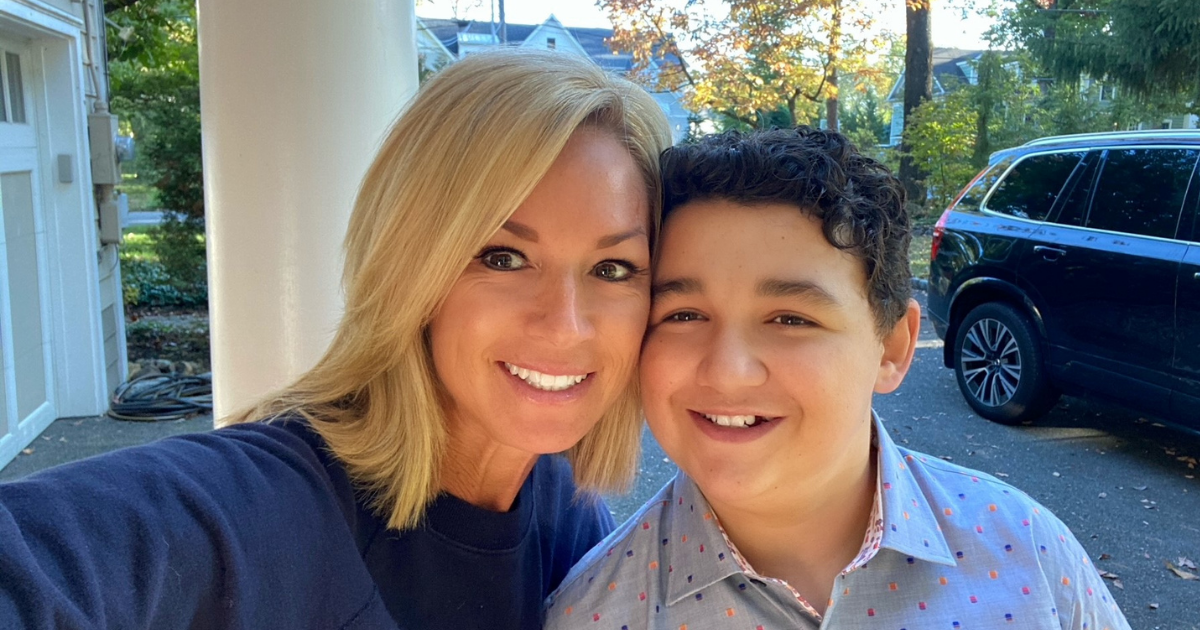People with Disabilities Still Face Barriers Accessing Dental Care

Did you know that for the more than 1 billion individuals worldwide with a disability, accessing and receiving competent oral health care is their number one unmet health care need?
Faced with a lifetime of challenges related to finances, education, social acceptance, living arrangements, income generation, and other daily uncertainties, individuals and caregivers often place oral health care lower on the priority list, which further exacerbates the problem.
As the executive director of Project Accessible Oral Health (PAOH), a global nonprofit, our primary focus is eliminating these barriers and ending oral health disparities for people with disabilities. As a mom of a 12-year-old non-verbal son with autism, I encounter many of these challenges every day.
The truth is good oral health is an integral part of overall health. Lack of education and preventive oral care leads to higher costs, higher burden of disease and cavities, and an increase in more significant oral health problems and medical conditions caused by poor oral health.
But even if oral health care were prioritized or an emergent need arose, finding a provider who specializes in caring for individuals with disabilities is difficult and often impossible.
How did we get here?
One reason that caregivers and families are often left without choices is because they literally cannot get in. Accommodations for individuals with disabilities are often limited in traditional dental clinics. As an example, a patient with a wheelchair will need a ramp and doors wide enough to pass through. They also need enough room to transfer to an appropriate dental chair for care.
The problem goes beyond ramps and doorways, though.
Adult Medicaid benefits are either nonexistent or limited in coverage in most states. When coverage is available, restorative work is often limited, and reimbursement rates are considerably lower than private insurance. These issues are compounded by the fact that most public and private insurers don’t reimburse providers for the additional time and resources that may be necessary to provide quality and appropriate care to people with disabilities.
Education and training is yet another piece of the puzzle.
Until 2019, dental schools were not required to teach students about treating individuals with disabilities. As a result, many oral health care professionals have had little or no exposure to someone with an intellectual or developmental disability. And without additional training and education, some oral health care professionals may falsely assume the only way to treat is to sedation or general anesthesia—a costly, invasive and (for some patients) potentially dangerous intervention. Wait times in some areas can exceed two years or more.
Although an operating room is sometimes necessary, it shouldn’t be the first option. Dr. Steven Perlman, founder of the Healthy Athletes Program for Special Olympics, concurs: “90% of all individuals with a disability can and should be mainstreamed into a general practice. With the use of behavioral guidance techniques and positive adjustments in the attitude of the dental team, many individuals with disabilities can forgo sedation altogether, making it accessible to receive care in a timely fashion.”
It’s clear that change is necessary—at systemic, institutional and individual levels.
To address training gaps and strengthen skills, the Delta Dental Foundation (DDF) recently sponsored a free continuing education series through Penn Dental Medicine. Dentists completing 18 or more of the courses within a three-year period will receive a certificate of completion as a Disabilities Dentistry Clinician Expert.
We’re also leveraging technology for successful office visits. DDF funding has allowed PAOH, in collaboration with InfiniTeach, to develop the All Smiles Shine app (available on the Apple App Store and Google Play Store). It’s designed to help individuals with autism navigate a routine dental visit through picture scheduling, identifying emotions, breathing exercises, games and more. The app also offers caregiver resources to support daily preventive care and a personalized profile—including your child’s sensory preferences, interests, and calming tools—that can be shared with your child’s dentist.
Caring for an individual with a disability can be overwhelming and challenging. Our children are often the last to be considered and the first to be dismissed. Many people seem to believe that individuals with disabilities are not—or do not deserve to be—equal citizens. My hope each day as I advocate for my son’s well-being and best interests is acceptance. I want the world to see him the way I do: uniquely made in how he navigates day-to-day activities.
Organizations like PAOH and the DDF are doing what they can to raise awareness and elevate the voices of the disability community. Next month, we’re launching All Smiles Shine, a national advocacy and awareness campaign that will elevate the issue and galvanize a movement—but efforts such as this will not be enough.
The greater oral health community has a part to play, too. Whether that’s through policy solutions (such as expanding Medicaid dental benefits for the disabled), creating welcoming physical environments, or committing to a new training program—the time is now.
We must provide diverse and inclusive opportunities for those with disabilities and understand: we are not different in our need to access quality, competently delivered oral health care.
Barbie Vartanian is the executive director of Project Accessible Oral Health, a recipient of DDF grant funding a global initiative focused on improving the health equity of the more than 61 million individuals living with a physical or intellectual disability. Barbie’s most important role is mother to her son with autism. She understands firsthand the barriers he faces and will continue to face throughout his life. Once Sam was diagnosed, she knew she needed to do something more, to be his voice, his advocate, and his champion!
